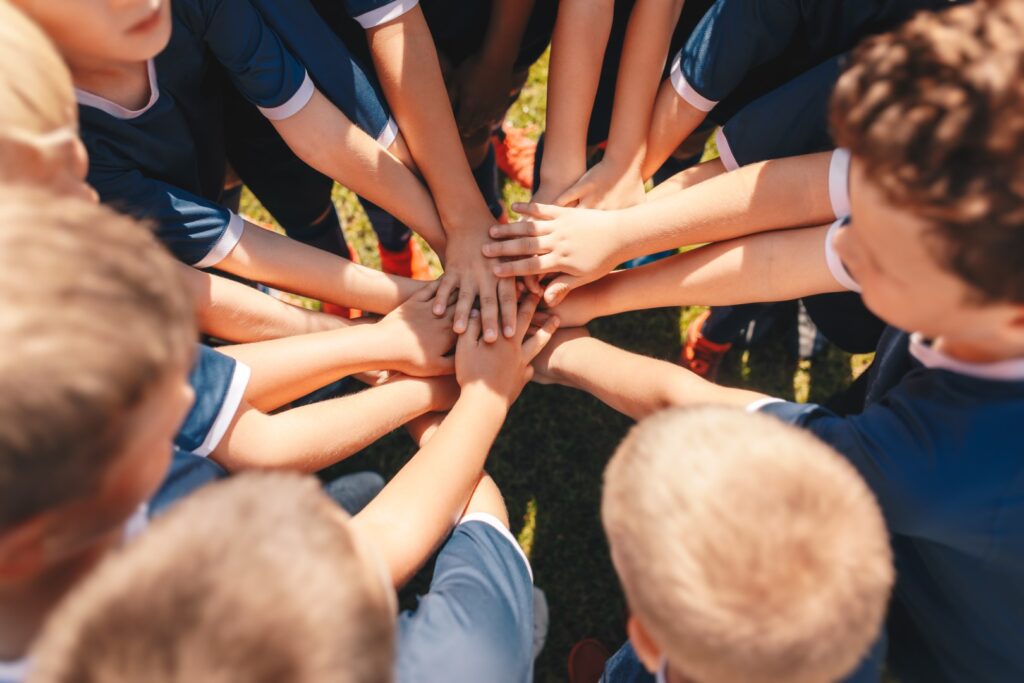Sports have been an integral part of human civilization for centuries, and their impact on society and culture cannot be overstated. From the ancient Greek Olympics to modern-day global sporting events like the FIFA World Cup, sports have always captured the imagination of people worldwide. In this blog, we will explore the ways in which sports have shaped and continue to shape society and culture.

Bringing people together
Sports have the power to bring people together, regardless of their differences. When people come together to support their favorite team or athlete, they form a sense of community and camaraderie that transcends race, religion, and social class. Sporting events are often seen as a unifying force, where people from all walks of life can come together to celebrate their shared love of the game.
Promoting physical fitness and health
Sports have long been recognized as a key driver of physical fitness and health. Participating in sports can help people maintain a healthy weight, build muscle mass, and reduce the risk of chronic diseases like heart disease, diabetes, and cancer. Sports can also promote mental health, with studies showing that regular physical activity can reduce stress and improve overall well-being.
Fostering teamwork and leadership skills
Sports can be a powerful tool for teaching important life skills, such as teamwork and leadership. Team sports like basketball, soccer, and volleyball require players to work together to achieve a common goal, teaching them the importance of communication, trust, and cooperation. Individual sports like tennis and swimming can also teach valuable lessons about discipline, perseverance, and self-motivation.
Inspiring role models
Sports have produced some of the most iconic and inspiring role models in history. From Muhammad Ali and Serena Williams to Michael Jordan and Usain Bolt, athletes have inspired millions of people with their stories of hard work, dedication, and perseverance. These athletes have become symbols of hope and inspiration, inspiring people to overcome adversity and achieve their dreams.
Economic impact
Sports can have a significant impact on the economy, generating billions of dollars in revenue each year. Sporting events can create jobs, attract tourism, and stimulate local economies. For example, the FIFA World Cup is estimated to generate over $14 billion in revenue and create tens of thousands of jobs. Similarly, the Super Bowl is estimated to generate over $500 million in economic activity for the host city.
Social impact
Sports can also have a significant social impact, particularly in terms of promoting social inclusion and combating discrimination. Sporting events can bring people from different backgrounds and communities together, creating opportunities for dialogue and understanding. Sports can also be a powerful tool for promoting gender equality, with many organizations working to increase the representation of women in sports at all levels.

Cultural impact
Sports can play a key role in shaping cultural identities and traditions. Many sports have deep cultural roots, and they can be an important part of a community’s cultural heritage. For example, football is deeply ingrained in the culture of Brazil, while cricket is a symbol of national identity in India. Sporting events can also be a celebration of cultural diversity, with many events showcasing different cultural traditions and practices.
Political impact
Sports can also have a significant impact on politics, both domestically and internationally. Sporting events can bring countries together, promoting diplomacy and cooperation. For example, the Olympic Games have been used as a tool for promoting peace and understanding between nations. Sporting events can also be used to make political statements, such as when athletes use their platform to raise awareness about social and political issues.
Conclusion
Sports have a profound impact on society and culture, shaping everything from our physical and mental health to our political and economic systems. Whether it’s bringing people together, promoting physical fitness, fostering teamwork and leadership skills, inspiring role models, or driving economic growth, sports have the power to change lives and create positive social change. As sports continue to evolve and adapt to the changing needs of society, we can expect to see new ways in which sports impact our world.
It is important to recognize that while sports can have a positive impact on society and culture, they can also perpetuate negative attitudes and behaviors. For example, sexism, racism, and homophobia are still prevalent in many sports, and there is a need for continued efforts to combat these issues. Overall, the impact of sports on society and culture is multifaceted and complex. As we continue to engage with sports, it is important to recognize their power to create change and to use that power in a positive way. By fostering inclusion, promoting healthy lifestyles, and inspiring individuals to achieve their goals, sports have the potential to make a positive impact on our world for years to come.

